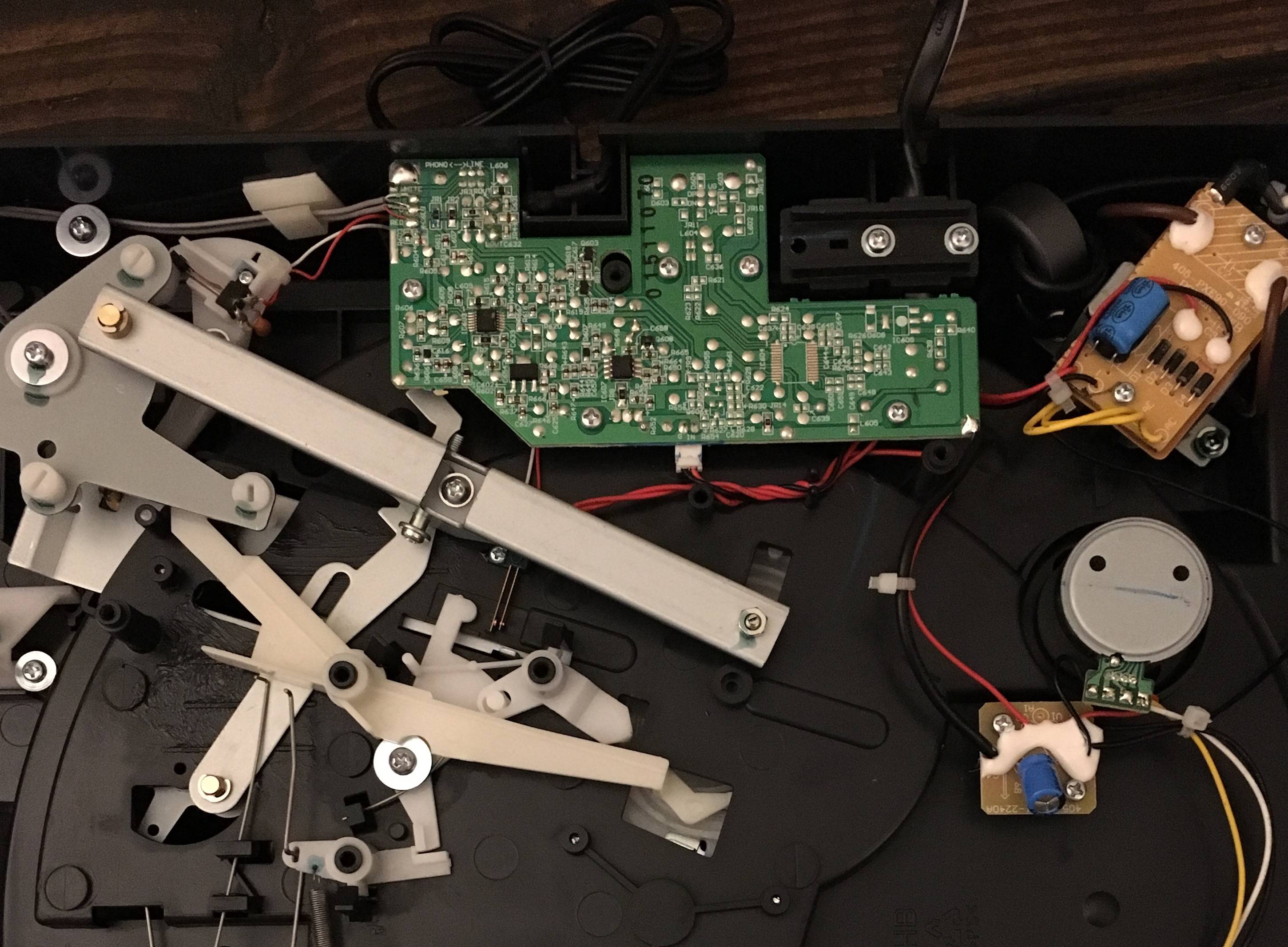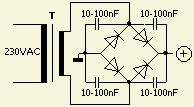So, I just bought a new record turntable (Audio-Technica AT-LP60BK) since… Hey! I guess I still like records. This is the base model AT-LP60BK turntable that only has RCA connectors for output; no Bluetooth or USB connection. Put analog connections happening for audio output.
Anyway, this turntable has a built in phono pre-amp. It amplifies well for true line level output, but there is a catch… Sometimes when the phono pre-amp is switched on I can pick up what sounds like CB (or maybe even HAM?) radio signals from my neighborhood. Possibly from a local car service? Definitely not a baby monitor since it’s clearly the sound of a conversation into a microphone.
No full voices are discernable but that kind of mumbling that sounds like an adult in the Peanuts/Charlie Brown cartoons. It’s incredibly annoying. FWIW, these rogue transmissions are sporadic in nature and there are times of day I (thankfully) hear nothing but the sweet tunes I am playing on my setup.
If I switch it to normal phono level output the levels are obviously lower, but then there are utterly no mumbling radio interference nonsense. Tested with it hooked up to my Sony CMT-SBT100 receiver as well as a stand alone speaker so I am 100% positive the issue is isolated to the turntable and only when the phono pre-amp is hooked up. I can hear this stuff if I simply have the turntable powered, not spinning and plugged into a speaker… All I have to do is switch on the built-in pre-amp.
I went ahead and opened up the bottom of the case to see if I could see anything obviously “off” about things; see picture below. Like most modern electronics, it all seems like a single-board setup and simple enough. But one thing comes to mind: Perhaps the issue is because there is utterly no shielding around the circuit-board?
I’m at a loss at what to do: Maybe get an external phono pre-amp and just use that? Or something else perhaps? Maybe add some simple shielding to the setup?


